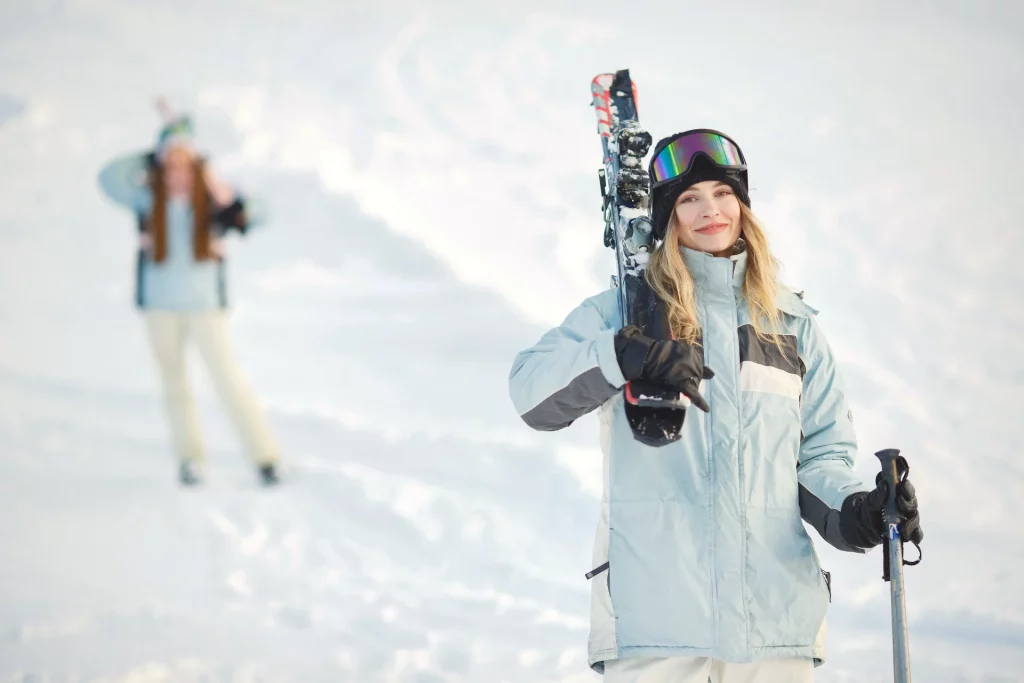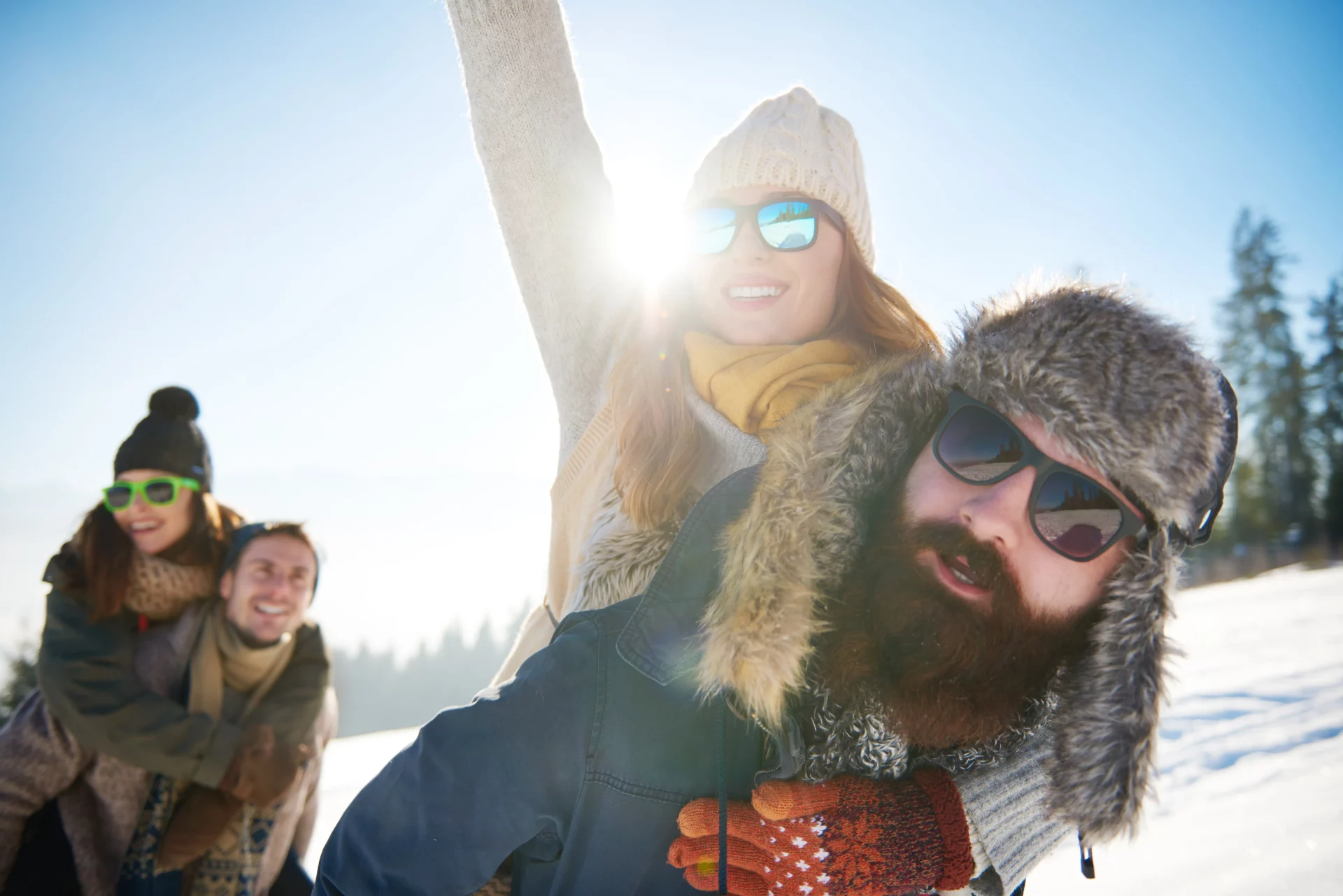Skiing, a thrilling winter sport, draws in countless enthusiasts each year who seek the exhilaration of gliding down snow-clad slopes amidst stunning alpine scenery. While this sport offers a unique blend of adventure, fun, and physical exercise, it does not come without its share of risks. Potential dangers include not only environmental threats such as avalanches and harsh weather conditions but also personal injuries ranging from minor sprains to significant fractures. It’s essential to approach this sport with an understanding of these risks, and a commitment to prioritizing safety to ensure a healthy and enjoyable skiing experience.
First Aid and Supplies
Familiarize yourself with basic first aid and always have an adequate supply of essentials like bandages, antiseptics, pain relievers, and any necessary personal medications. Adequate hydration and nutrition are key, so carry water and high-energy snacks. If you are uncertain about how to properly prepare for this, you can always consult medical supply tips from professionals or local ski resorts. It’s better to be safe than sorry. Moreover, if you are skiing with a group or family, ensure that everyone has access to these supplies and knows how to use them in case of emergencies. From minor falls to more severe injuries, being prepared can make a significant difference in the outcome.
Physical Fitness and Preparation
Begin a fitness regimen focusing on cardiovascular stamina, strength, and flexibility weeks before your trip, as this is crucial in preventing injuries. Skiing puts a significant strain on your muscles, which need to be ready for the demands of this sport. Regular exercises such as jogging, cycling, and weight training can strengthen these muscles while also improving balance and coordination. Yoga is another excellent option to improve flexibility and reduce the risk of muscle strains and tears. Furthermore, it’s essential to invest in good-quality gear and equipment, which is well-maintained and suited for your skill level. It’s also a good idea to regularly check the weather and slope conditions before hitting the slopes.

Equipment and Dress Code
Ensure your skiing equipment is well-fitted and in prime condition. Dress appropriately for the weather by layering your clothing, investing in good quality ski wear, and always wearing a helmet. It’s tempting to dress lightly, especially when the sun is shining, but remember that temperatures can drop quickly and unexpectedly in mountainous regions. Protect your hands, feet, and eyes with proper gear as they are more susceptible to frostbite and other injuries. Always have a whistle or communication device on you for emergencies. For beginners, it’s highly recommended to take lessons from professional instructors who can not only teach you the basics of skiing but also how to use your equipment safely and correctly.
Ski Lessons and Ski Code
Professional ski lessons can provide valuable insight into proper techniques and safety protocols. Always respect all signs, warnings, and boundaries while choosing runs that are appropriate for your skill level. Additionally, be mindful of other skiers on the slopes and practice safe skiing etiquette. Skiing under the influence of alcohol or drugs is never a good idea and can put yourself and others at risk. It’s also important to follow ski resort rules and regulations regarding off-piste skiing, as it can be dangerous and unauthorized in certain areas. For a safe and enjoyable skiing experience, always prioritize your safety and that of others on the slopes.
Nutrition
Staying hydrated is especially important in high altitudes and dry mountain air. Pack water and energy bars to keep you fueled throughout the day. It’s also important to eat a well-balanced meal before hitting the slopes and to take regular breaks to refuel. Carbohydrates and proteins are essential for energy, while healthy fats can provide long-lasting fuel. Avoid sugary snacks that may give you quick bursts of energy but lead to crashes later on. Most ski resorts offer a variety of dining options, so be sure to take advantage of healthy food choices.
Sun Protection
The sun’s reflection off the snow can be harsh on your skin and eyes. Don’t forget to apply sunscreen and lip balm, and always wear ski goggles. Sunglasses may not provide enough coverage, so protect your eyes with proper goggles that have UV protection. It’s also recommended to wear a face mask or balaclava to cover exposed skin and keep it protected from the cold and sun. From preventing sunburns to protecting your eyesight, proper sun protection is crucial for a safe and healthy skiing experience. Most importantly, listen to your body and take breaks when needed. Skiing can be physically demanding, so make sure to rest and recharge throughout the day.
Skiing is an exciting sport that can be enjoyed by people of all ages and skill levels. To ensure a safe and healthy experience, it’s crucial to understand and prepare for potential risks, prioritize safety, and make informed decisions both on and off the slopes. With proper preparation, gear, and knowledge, you can enjoy all the thrills of skiing while minimizing the chances of injuries or accidents. So go out there and have a great time on your next ski vacation!

Jasper Bruxner is a passionate and versatile blogger with a keen eye for trends and a knack for crafting engaging content. As the founder of WendyWaldman, he has established himself as a trusted resource in a diverse range of niches, including food, tech, health, travel, business, lifestyle, and news. He tends to share the latest tech news, trends, and updates with the community built around Wendywaldman. His expertise and engaging writing style have attracted a loyal following, making him a respected voice in the online community.




